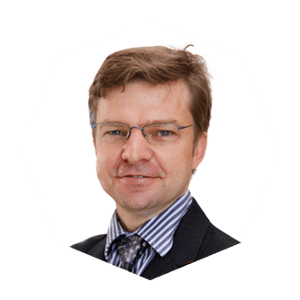
We are proud to announce that Prof. Visser, academic director of the sustainable transformation lab is now #7 on the Think List of the world’s most influential thinkers on issues of responsible business. It has been nearly a year since Prof. Dr. Wayne Visser was appointed as the world’s first Chair on Sustainable Transformation and Professor of Integrated Value. The Chair is supported by BASF Antwerp, the Port of Antwerp and Randstad Belgium. How does he look back on the previous 1,5 year at AMS?
What are you the most proud of over the past year?
When I started with AMS in October 2017, we turned our Corporate Responsibility Knowledge Centre into the Sustainable Transformation Lab to signal to the market that we want to work with partners on ambitious change projects. I am proud that this has started to happen. Over the past year, this has meant speaking at many conferences and forums about what is needed for sustainable transformation, across four themes: positive futures, integrated value, meaningful innovation and purposeful leadership. Introducing many thousands of people to the new concepts of integrated value and the values dividend has been especially rewarding. I am also proud that at AMS we are “walking the talk” by integrating sustainability into our research and teaching, including across all 9 of our full time Master programs, as well as the executive MBA and executive PhD. And finally, I am really pleased with the enthusiasm with which my documentary film on the circular economy, Closing the Loop, has been received, not only in Belgium but all around the world. AMS will be organizing an Antwerp screening at Kinepolis in March 2019, as part of AMS’s 60-year anniversary celebrations, so watch this space!
One of your taglines is the African proverb ‘if you want to go fast, go alone, if you want to go far, go together’. How do you practice what you preach at AMS?
This starts with having a fantastic Sustainable Transformation Lab team and a strategic commitment from AMS to put sustainable transformation at the heart of our mission: to develop self-awareness, global perspectives and societal consciousness. Then we always try to work in partnerships, notably with my Chair partners, BASF, Port of Antwerp and Randstad, but also with other partners and clients like J&J Benelux, AXA, The Shift, CIFAL Flanders, Sustenuto and WZF. Our research publications are usually the result of collaboration, such as the Sustainable Change survey (supported by ING) and the SDG Barometer (with Universiteit Antwerpen and Louvain School of Management, supported by FIDO and ING Belgium). Our Corporate Leadership Groups on the Circular Economy and the Wellbeing Economy are also based on joint-action to increase impact. And we are in the process of establishing the Antwerp Partnership for Sustainability, with AMS, Universiteit Antwerpen, BASF and the City, Province and Port of Antwerp. Finally “going far, together” is our motivation for participating in the UN Principles for Responsible Management Education (PRME), where we chair the France-Benelux Chapter, GRLI and supporting other associations like The Shift and ABIS.
What would be your advice you to businesses that would like to step up their sustainability game in the coming year?
I have been very critical over the past year about businesses “cherry picking” and “rainbow-washing” their efforts around the SDGs. So my advice would be to ask whether the SDGs are really being used to create sustainable transformation. One way is to check against the 7 facets of integrated value. Is the business: rethinking patterns (applying systems thinking), redefining purpose (introducing ambitious strategic goals), reassessing performance (creating science-based targets), realigning partners (upgrading stakeholder engagement), redesigning products (innovating sustainable solutions), reshaping playing-fields (practicing positive lobbying) and renewing principles (tapping into synergetic values). If businesses are taking action in all 7 of these areas, they will find they are creating a tremendous “values dividend” – a return of benefits to business, the economy and society. I would also invite businesses to join one of Corporate Leadership Groups, since these are all about stepping up the sustainability game through collaborative action. Besides our circular economy and wellbeing economy groups, we will also introduce groups on risk mitigation (resilience economy), social inclusion (access economy) and digital transformation (exponential economy).



